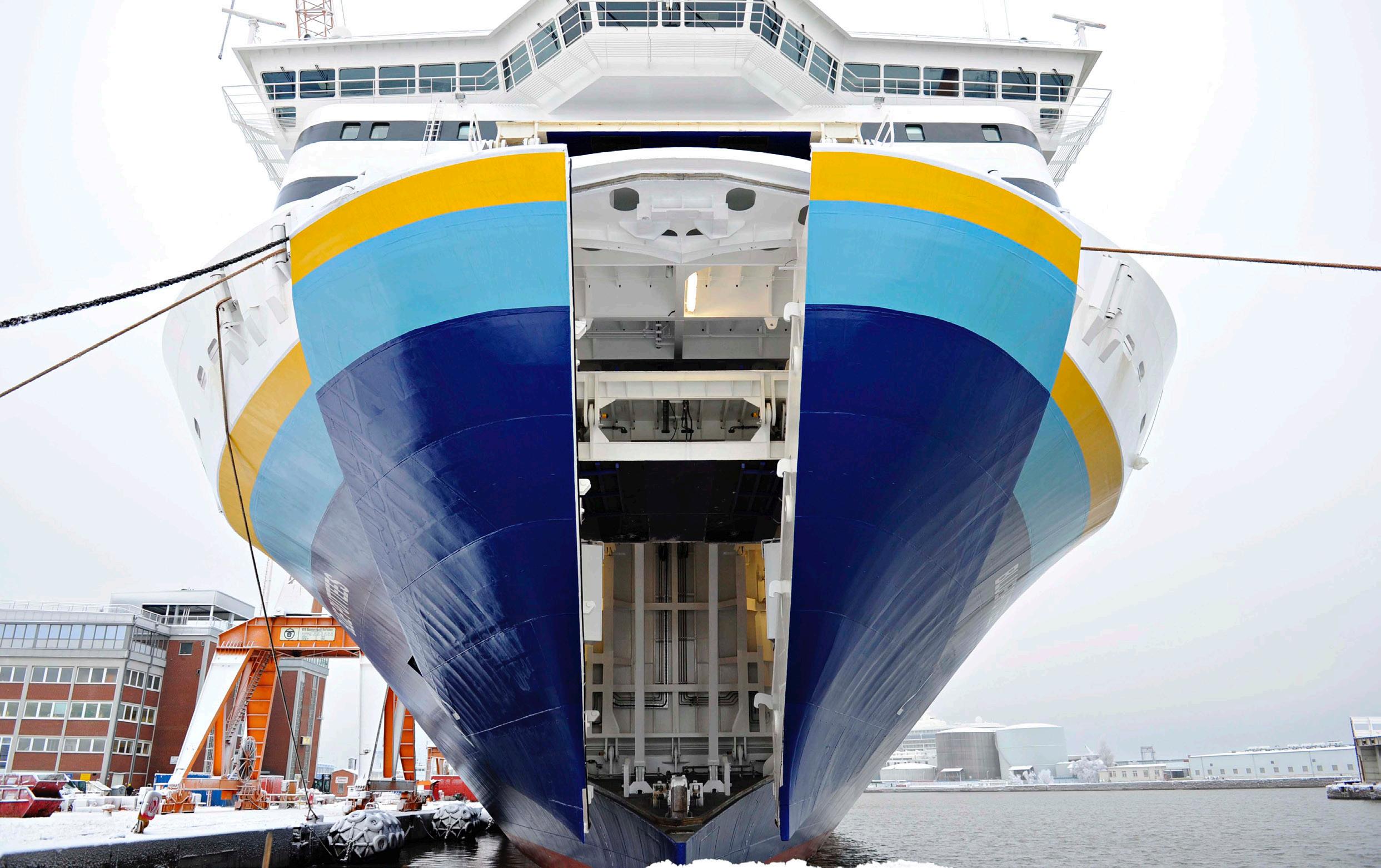
2 minute read
Lifecycle
Maximising lifecycle value
Ships can be enhanced during their lifetime to make them more profitable
Advertisement
All vessels must be maintained throughout their service life, but they can also be improved. To capture value, owners need to focus on the lifecycle earning potential of the vessel, not only on initial capex.
MacGregor modernisations, upgrades and retrofits have been proven to maximise a ship’s operation availability during its long life.
Shipowners must continuously assess whether their fleets, firstly, comply with regulations and secondly, are as safe and efficient as they can be. If improvements can be made, then owners might look to modernise, upgrade or retrofit solutions especially in today’s environment where vessel optimisation is the number one concern for most owners as witnessed by our survey carried on page four.
MacGregor offers many modernisation options. These include upgrading equipment, such as key components or control systems, for safer, more efficient operations and reduced maintenance costs. Going further, an owner might consider a MacGregor Cargo Boost (see page 9) which can improve the cargo carrying efficiency and therefore the earning potential of existing containerships.
MacGregor service contracts are offered by the Global Services Division and are designed to save customers’ money and reduce their maintenance administration burden.
The scope of work offered by the company in this domain includes planned maintenance and drydocking activities focused on maximising equipment reliability and availability, and enabling more effective inventory forecasting across an owner’s fleet.
“In the past, the service organisation footprint and logistics management capabilities required to effectively support ships in operation and maintaining a schedule have perhaps not been fully recognised,” says John Carnall, MacGregor’s
senior vice president for global services. “With the limitations on travel and provision of onboard support seen during this year’s pandemic, this has changed and customers are seeing the value of locally based specialists and remote technical expertise in ensuring that the right parts are available in the right place at the right time.”
“Customers are recognising the value of condition-based information as a maintenance planning advantage,” says Dennis Mol, vice president, digital and business transformation. “As an industry, we are moving towards predictive tools, which will help to eliminate unplanned downtime, ultimately reduce maintenance costs and increase revenue and profitability.”
MacGregor is developing algorithms that can predict when certain equipment requires maintenance based on use and condition, rather than relying on conventional time-based service schedules. Digital advances in this arena include OnWatch Scout, a predictive tool developed to ensure that equipment is able to operate more or less continuously. ●

